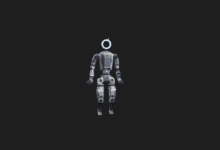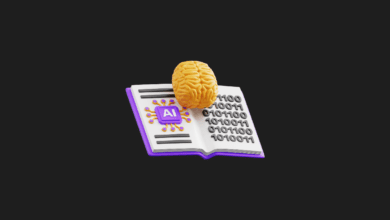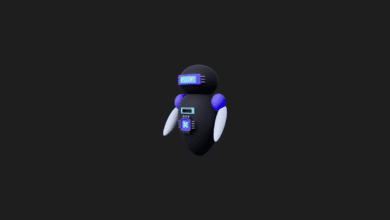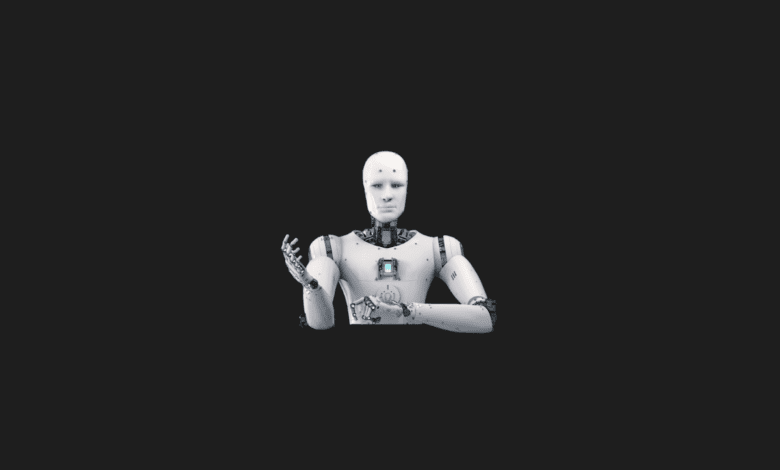
Jobs that AI Will Destroy in the Future
Experts believe that artificial intelligence (AI), a pivotal technology of our era, is set to create numerous new jobs while automating others. The impact of AI is expected to be profound across all aspects of our lives, especially in the realm of employment.
Those closely watching this remarkable technology foresee a dual effect in the years ahead: AI will introduce a variety of new job categories while also automating certain existing roles.
For example, the online learning platform Coursera predicts that by 2025, advancements in digitization, data, and artificial intelligence will lead to nearly 97 million new job opportunities. In contrast, the globally recognized investment bank Goldman Sachs estimates that 300 million jobs could be automated within the same period.
Therefore, AI is set to significantly influence, transform, and even eliminate jobs across various sectors in the near future. It is anticipated that several professions will become automated in the short term. With AI evolving rapidly, it prompts the question of how long certain jobs will remain viable in the face of this relentless progress. Let’s explore these details further.
Jobs that AI Will Destroy in the Future
- Administrative Affairs (2030-2035)
- Investment expertise and consultancy (2025-2030)
- Law (2030-2035)
- Software (2028-2033)
- Publishing (2026-2038)
- Graphic design (2026-2038)
- Teaching (2027-2040)
- Security (2030-2040)
- Driving (2030-2035)
1.Administrative Affairs (2030-2035)
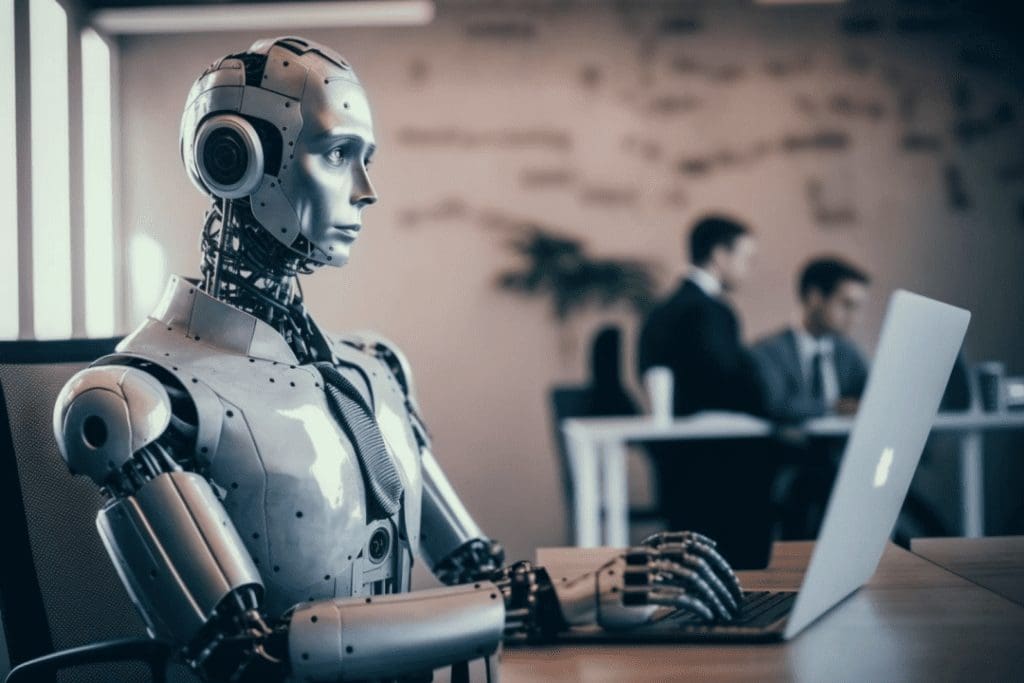
The impact of artificial intelligence on various professions is undeniable, with some careers being more vulnerable to AI’s influence than others. Notably, investment professionals and advisors are at risk of becoming obsolete within a few years.
Numerous private companies and technology firms are actively developing AI chatbots that specialize in analyzing financial data and offering investment advice. These digital platforms, often called “robo-advisors,” provide clients with a broader range of financial advisory services than any human investment professional could offer.
As a result, the fields of investment expertise and consultancy are likely to experience a significant downturn due to AI advancements.
2.Investment expertise and consultancy (2025-2030)
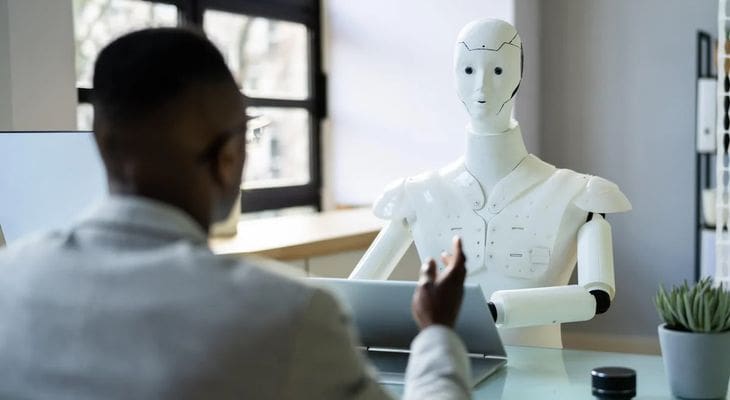
Artificial intelligence is set to significantly impact every existing profession, with certain careers facing more profound effects from AI advancements.
Notably, the future of investment professionals and advisors looks particularly precarious, as they might find themselves without work in just a few years. This is largely because numerous private companies and technology firms are vigorously developing AI chatbots that specialize in analyzing financial data and offering investment advice.
Termed “robo-advisors,” these applications are designed to provide clients with comprehensive financial advisory services, capabilities that far exceed those of any human investment professional.
Therefore, the domain of investment expertise and consultancy is on the brink of substantial disruption, potentially leading to a swift decline, all driven by the progression of AI.
3.Law (2030-2035)
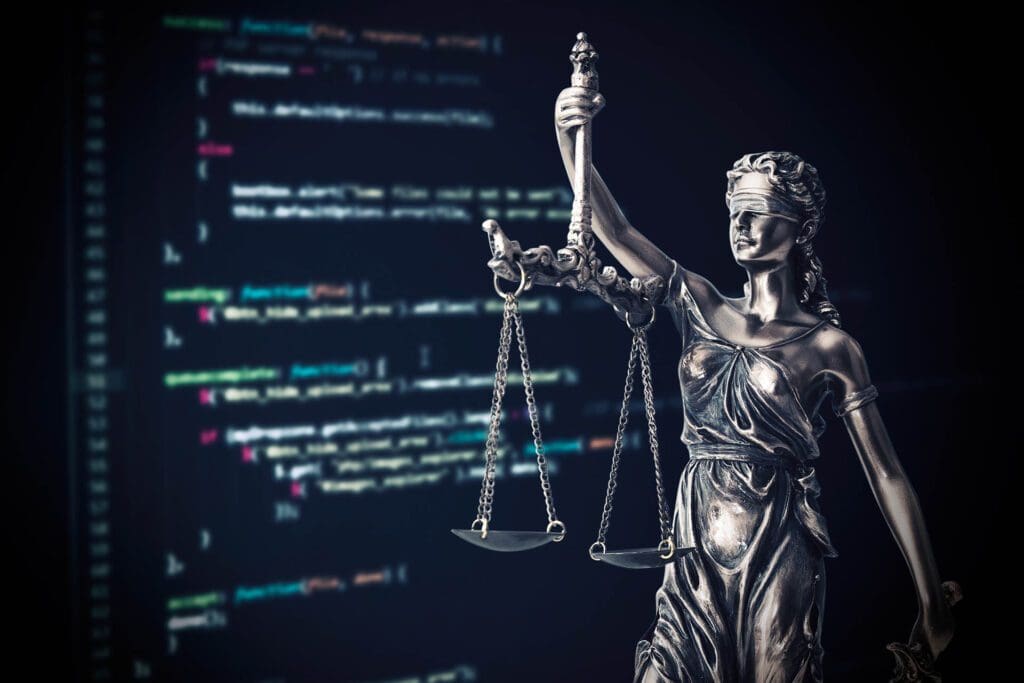
A Goldman Sachs report, rich with fascinating insights on artificial intelligence, highlights the legal sector as one of the areas most significantly impacted by AI technology. The report reveals that about 44% of the industry is already experiencing the influence of AI.
Artificial intelligence is expected to streamline legal processes and reduce costs, especially in countries like the United States, where the expense of litigation can be prohibitively high.
For example, an AI application named Casetext has been developed to function as a legal assistant, effectively replacing many trainee and assistant lawyers.
Moreover, the emergence of “AI judges” in courtrooms across various countries, with China being a notable case, marks a significant advancement in the integration of AI within the legal domain.
4.Software (2028-2033)
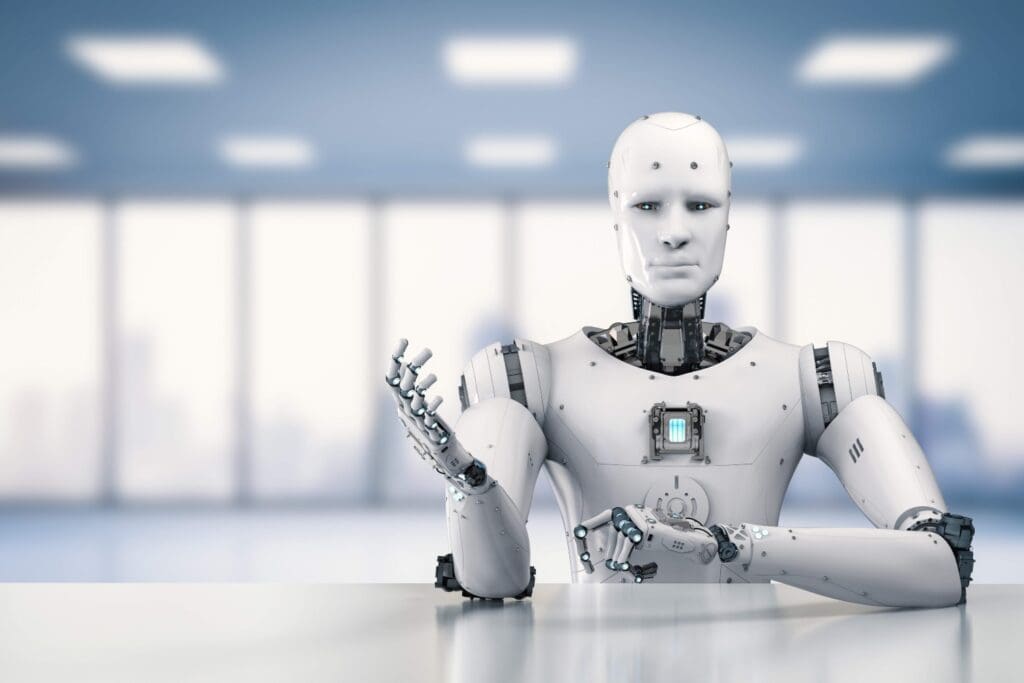
Widely used artificial intelligence applications, available to millions worldwide, have demonstrated remarkable efficiency in writing basic to intermediate code.
Additionally, many AI applications are subjected to intensive training to enhance their capabilities in software development. As a result, numerous experts anticipate that artificial intelligence could supplant a significant portion of software developers within the next five years.
5.Publishing (2026-2038)
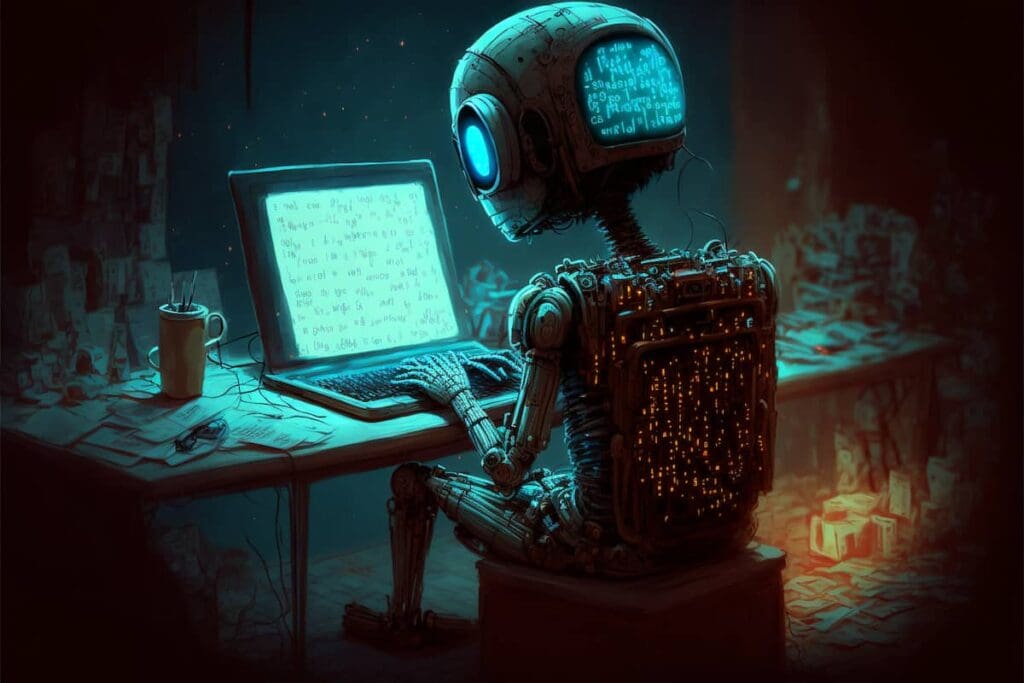
Writers, journalists, translators, and editors are among those experiencing the dual impact of artificial intelligence most acutely.
The advanced writing tools developed by giants like Google and Microsoft have significantly eased the workload for translators and editors in recent years. Similarly, ChatGPT and other AI chatbots are beginning to reduce the burden on writers.
However, this swift automation brings with it the threat of job loss for individuals in these fields. In fact, several media organizations have already started to publish articles written by artificial intelligence, leading to downsizing of editorial teams.
In summary, artificial intelligence is poised to significantly disrupt the landscape for those in the writing profession in the near future.
6.Graphic design (2026-2038)

Tools like Dall-E, Stable Diffusion, and Midjourney exemplify the transformative impact of technology on the visual arts landscape.
Thanks to these tools, it’s now possible to create stunning visuals in just a few seconds. Moreover, continuous advancements in artificial intelligence technology are instigating significant shifts in the graphic design field.
Such progress is generating apprehension among numerous professionals engaged in visual production activities.
7.Teaching (2027-2040)
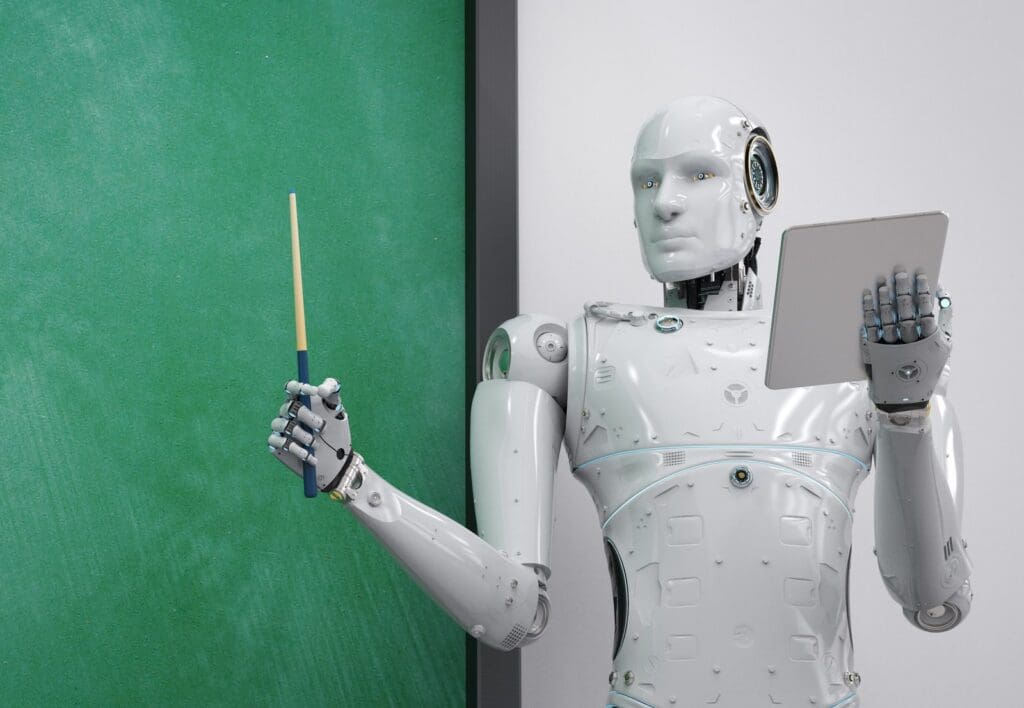
Artificial intelligence has made a significant mark on the education sector. Currently, ChatGPT has become a “best friend” to many students due to its remarkable capability to virtually eliminate the burden of homework.
However, the impact of artificial intelligence extends beyond aiding students; it has the potential to transform the educator’s role in the learning process.
Various AI tools are now adept at executing essential tasks such as grading, offering feedback, and evaluating assessments.
Moreover, these tools possess the unique advantage of providing education around the clock. Consequently, some experts foresee the possibility of artificial intelligence stepping into the role of teachers by the year 2027.
8.Security (2030-2040)

Robots supported by artificial intelligence have already been integrated into law enforcement agencies across several countries, including the United Arab Emirates, India, and China, where “robot cops” are actively in service. Similarly, robots with comparable capabilities are being utilized in demanding military operations.
Given these advancements, individuals closely monitoring artificial intelligence technology believe that robot security forces are poised to become a pivotal and widespread element in the security sector in the future.
9.Driving (2030-2035)
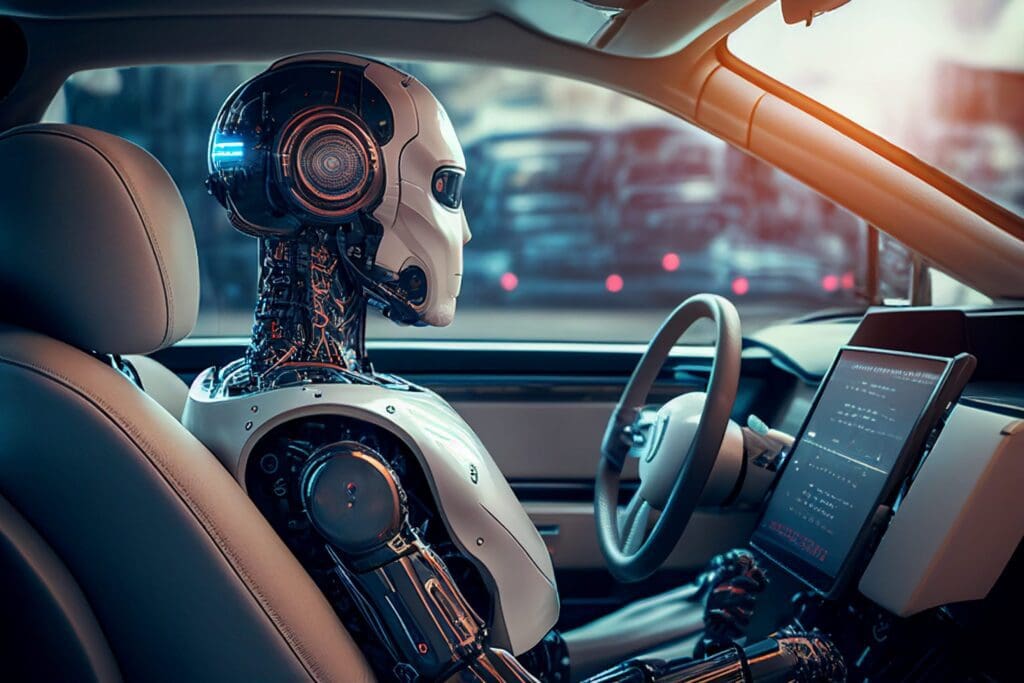
Autonomous driving technology has become a common feature in almost all new-generation vehicles. Given the ongoing advancements in the automotive industry, it seems reasonable to forecast that auto-piloting will become increasingly widespread in the near future.
Consequently, driving as a profession is likely to be added to the list of jobs that could disappear in the coming years or evolve into a nostalgic hobby.
You may also like this content
- Meta Building World’s Fastest AI Supercomputer for Metaverse
- Artificial Intelligence Will Make Decisions Instead Of People
- Bill Gates: Artificial Intelligence Over Web3 and Metaverse
Follow us on TWITTER (X) and be instantly informed about the latest developments…




